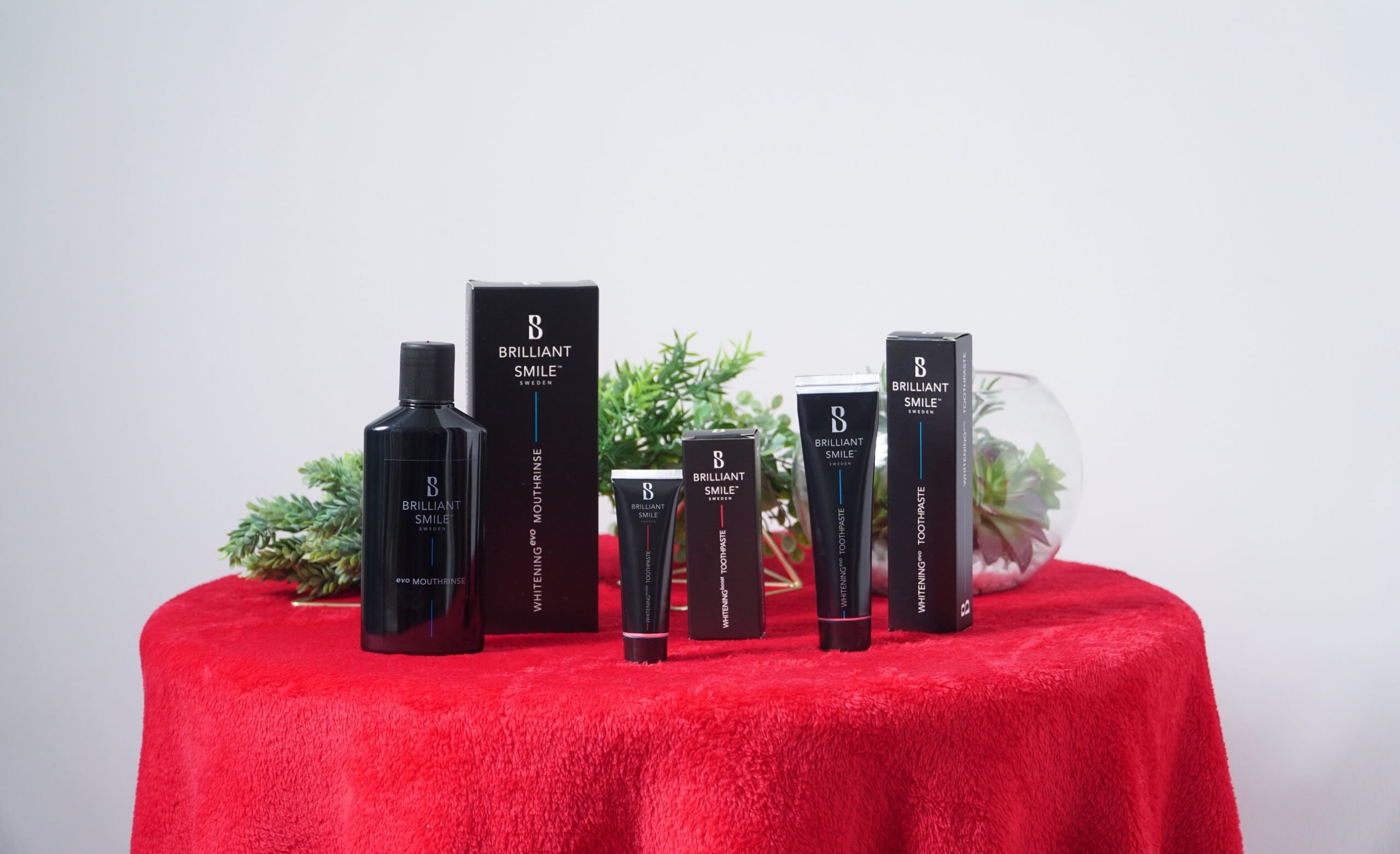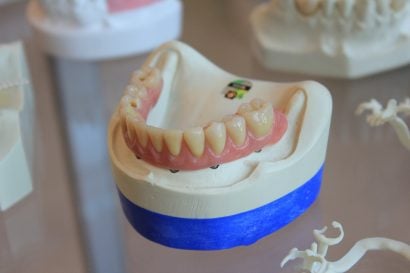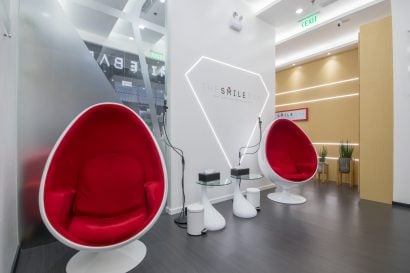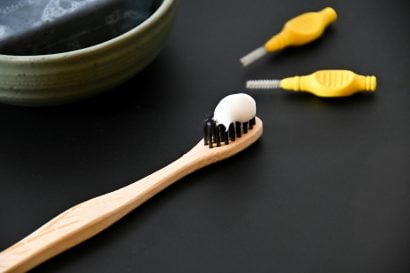The most effective whitening toothpaste combines gentle cleaning agents with clinically approved ingredients like fluoride, pyrophosphates, and low-abrasion silica. While some products use higher levels of hydrogen peroxide or abrasive agents for faster results, these can compromise enamel and gum health over time. A dentist-developed formula, such as the BrilliantSmile™ Whitening EVO, delivers visible whitening while protecting tooth structure—making it ideal for safe, daily use in Bangkok’s humid, smile-conscious climate.
What is the most effective teeth whitening toothpaste?
Whitening Toothpastes in Thailand: Which Are Safe, and Which Should You Skip?
The quest for a whiter smile is universal, especially in style-conscious Bangkok. With dozens of whitening toothpastes on the market, how do you choose a toothpaste that actually works—without damaging the enamel or irritating sensitive teeth?
Let’s look at some of Thailand’s most popular options, what sets them apart, and why Brilliant Smile’s Swedish-developed formulas are changing the game for people who want safe, effective results according to dentists.
Top Whitening Toothpastes Popular in Thailand
From convenience stores to pharmacies, these brands frequently pop up in shopping baskets:
-
Brilliant Smile™ Whitening EVO (fluoride based toothpaste)
- Colgate Optic White (2–5% hydrogen peroxide)
- Crest 3D White (abrasive silica formulas)
- Sensodyne Pronamel Gentle Whitening
-
HiWhite Charcoal Black Mint Toothpaste (charcoal powder receipe)
- Arm & Hammer Advance White (baking soda + peroxide)
- Crest Pro-Health Advanced (chemical agents with high cleaning power)
- Opalescence Whitening Toothpaste (peroxide whitening agent)
While globally recognized, some of these products contain ingredients like sodium lauryl sulfate or peroxide levels that wouldn’t pass European safety regulations. That matters—especially if you’re concerned about whitening toothpaste for sensitive teeth, or the long-term health of teeth and gums.
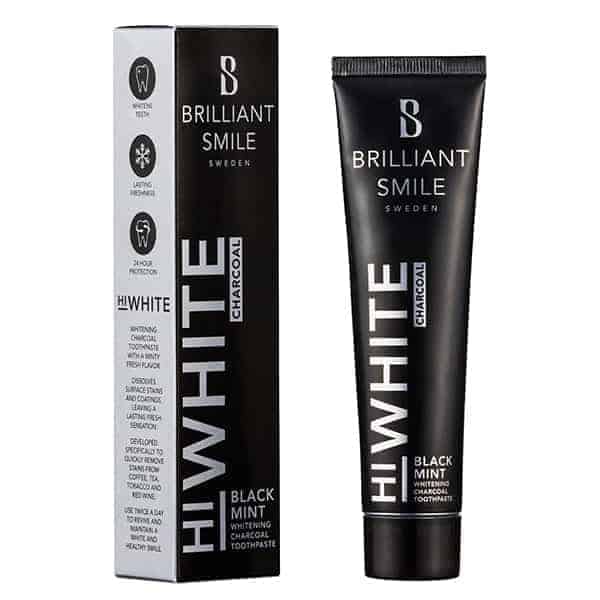
Brilliant Smile™ HiWhite Charcoal combines gentle cleaning with fresh mint flavor—ideal for removing surface stains.
What Causes Tooth Discoloration? And What Toothpaste Can and Can’t Fix
Tooth stains fall into two main types: extrinsic and intrinsic. Extrinsic stains live on the surface and are caused by foods and drinks like coffee, red wine, tea, or dark sauces—as well as habits like smoking. Whitening toothpaste can help remove these.
Intrinsic stains, however, are deeper in the tooth and may stem from medication, trauma, or aging. In these cases, even the best whitening toothpaste won’t make a big difference—you’ll need professional whitening treatments to truly brighten your smile.
Understanding the source of your discoloration helps you choose the right solution—whether that’s a daily paste or a dentist-supervised LED session.
The Role of Fluoride in Whitening Toothpastes
While whitening agents remove stains, fluoride protects teeth by strengthening enamel and preventing cavities. Most dentist-recommended pastes contain sodium fluoride, which helps resist decay and supports long-term oral health.
Some “natural” whitening toothpastes avoid fluoride entirely—but skipping it can leave enamel more vulnerable, especially if you’re brushing with abrasive ingredients. To whiten safely, always choose a toothpaste that combines fluoride with low-abrasion agents.
Natural vs. Chemical Whitening Agents: Which is Better?
Many whitening products now market themselves as “natural.” But not all natural ingredients are gentle or effective:
- Charcoal: highly abrasive, can strip enamel
- Baking soda: mild abrasive, but not a long-term whitening solution
- Essential oils or coconut oil: may freshen breath, but don’t remove stains effectively
Meanwhile, chemical whitening agents—like hydrogen peroxide or carbamide peroxide—break down stains at a molecular level. When used in safe doses, they offer clinical-grade whitening without excessive abrasion.
Your best bet? Choose a dentist-developed formula with balanced, EU-approved agents like pyrophosphates and zinc citrate.
Why Some Whitening Toothpastes Raise Red Flags
Hydrogen Peroxide Overload
Hydrogen peroxide is a powerful bleaching agent, but in high concentrations, it’s not meant for daily use. For example:
- Colgate Optic White Pro Series uses 5% hydrogen peroxide, well above the 0.1% limit allowed in over-the-counter EU products.
- Even the 2% formulas exceed what’s considered safe for unsupervised home use in Europe.
Such peroxide whitening can lead to damaged enamel, gum irritation, and sensitivity over time.
Overly Abrasive Ingredients
Brands like Crest and Arm & Hammer rely heavily on baking soda and hydrated silica to scrub away stains. While effective in the short term, frequent brushing your teeth with these agents can erode enamel, dull dental work, and make teeth more sensitive.
Ingredients to Look for in a Safe Whitening Toothpaste
According to dentists and the American Dental Association, the best whitening toothpaste includes key ingredients that clean safely and protect oral health. Here are the essentials:
- Sodium fluoride: strengthens enamel and prevents cavities
- Tetrapotassium pyrophosphate & zinc citrate: help prevent and dissolve surface stains
- Potassium nitrate: soothes sensitive teeth and gums
- Low-abrasion silica: a mild abrasive that brightens without damaging enamel
- No sodium lauryl sulfate: to avoid irritation, especially for people with sensitive teeth
- <0.1% hydrogen peroxide: if any at all, to remain EU-compliant
These are the ingredients to look for if you’re trying to maintain a brighter smile without compromising the health of your teeth.
All The Smile Bar products fully comply with these ingredient guidelines and meet strict European regulations to ensure both safety and exceptional results.
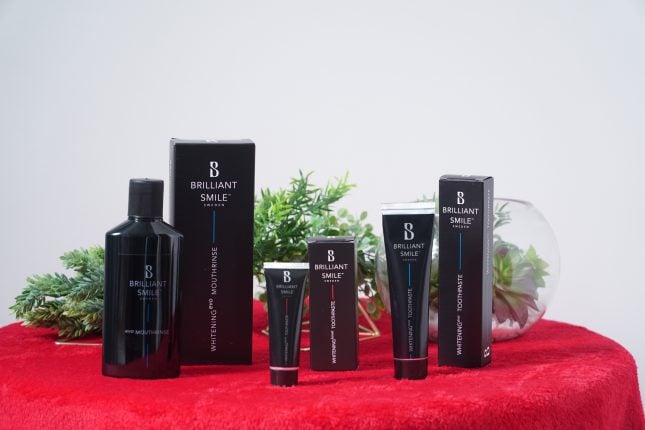
Complete your routine with the Brilliant Smile™ range—clinically proven to brighten your teeth while caring for enamel.
How Whitening Strips Compare to Toothpastes
Whitening strips are a popular over-the-counter alternative, but they come with caveats. Most contain hydrogen peroxide or another chemical whitening agent that can cause gum sensitivity and uneven whitening.
Unlike extra whitening toothpaste that strengthens and protects teeth, strips may not offer the same long-term benefits. For people with sensitive teeth or crowns, strips are not always the best bet.
If you want to whiten teeth gradually and gently, a well-formulated toothpaste is a safer and more sustainable choice.
Do Whitening Toothpastes Really Work on Sensitive Teeth?
Yes—if you choose the right one. Whitening toothpaste for sensitive teeth usually includes potassium nitrate to block nerve pain and a low-abrasion formula to avoid worsening sensitivity.
However, some brands claiming to be gentle still use ingredients like hydrated silica or sodium lauryl sulfate, which can lead to increased sensitivity and even gingivitis if used daily. Always review the key ingredients before purchasing.
For safe whitening and the health of teeth and gums, a dentist-developed formula is the ideal route.
What Dentists in Bangkok Recommend for Daily Whitening
Dentists at The Smile Bar and across Bangkok agree: whitening is safest when it’s part of a holistic oral care routine. Their top tips include:
- Use an electric toothbrush with soft bristles for even, gentle cleaning
- Avoid combining whitening strips and whitening toothpaste unless guided by a professional
- Space out peroxide use to prevent enamel erosion
- Opt for in-office LED whitening when you want fast, dramatic results
- Stick to fluoride-rich, enamel-safe toothpaste between treatments
The bottom line? Your daily toothpaste matters just as much as your dental visits.
Why The Smile Bar’s Swedish Toothpaste Line Is a Clear Winner
At The Smile Bar Bangkok, we’ve tested countless whitening products before landing on a line that delivers both aesthetic and dental benefits.
Discover the Best: BrilliantSmile™ WhiteningEVO :
- Developed in Sweden under strict EU cosmetic regulations
- Enamel-safe formula using fluoride, pyrophosphates, and zinc—no harsh bleach or abrasive damage
- Ideal for people with sensitive teeth, orthodontic wearers, and even pregnant or nursing women
- Designed as a two-week intensive extra whitening toothpaste, followed by the WhiteningEVO toothpaste for everyday maintenance
- Protects teeth while gradually brightening your smile and helping prevent future staining from foods and drinks
This is your best bet if you want white teeth with clinical-grade safety.
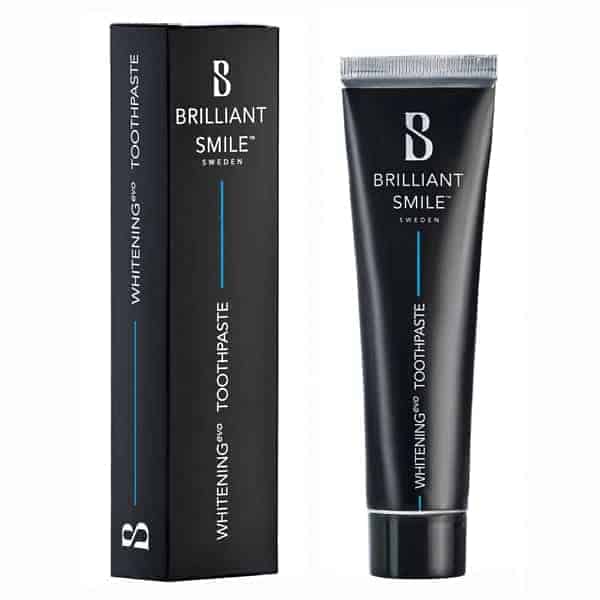
WhiteningEVO toothpaste delivers visible whitening with low-abrasion silica and fluoride to strengthen enamel.
Side-by-Side Comparison: Popular Brands vs. Swedish Safety
| Brand | Key Whitening Agent | Safety Concerns | EU Status |
|---|---|---|---|
| BrilliantSmile™ EVO | Fluoride + zinc + pyrophosphate | Enamel-safe, dentist-recommended | Approved |
| Colgate Optic White Pro | 5% hydrogen peroxide | High risk of enamel erosion | Not EU-compliant for OTC use |
| Crest 3D White | Abrasive hydrated silica | Long-term enamel wear | Allowed |
| Arm & Hammer | Baking soda + peroxide | Abrasiveness + irritation | Allowed |
| Crest Pro-Health Advanced | Silica, peroxide | Potential irritation & abrasion | Allowed |
| Opalescence | Peroxide whitening | May irritate gums | Dentist only formula |
| Sensodyne Pronamel | Mild silica, potassium nitrate | Safe for sensitivity | Approved |
Pro Tip: Combine Whitening Toothpaste with In-Office Treatments
To get brighter, longer-lasting whitening results, start with two weeks of BrilliantSmile EVO, then schedule a professional whitening treatment at The Smile Bar. Our in-office LED sessions, combined with regular dental checkups and professional cleanings, deliver optimal brightness and keep gums healthy.
For best results, use an electric toothbrush to enhance cleaning power and maintain the natural color of your teeth.
If you’re looking for an effective whitening toothpaste that respects your enamel and keeps your smile safe, take a look at our shop to discover our professional-grade products.
Final Thoughts: Safe Whitening is the Smartest Choice
In Thailand’s crowded oral care market, whitening toothpastes promise fast results. But many include chemical agents or abrasives that risk damaging the enamel or causing gingivitis. Instead, find the best whitening products that support both your appearance and your oral health.
At The Smile Bar Bangkok, we only recommend what meets EU safety and cosmetic standards. Our Swedish-developed toothpaste line offers a teeth-whitening solution that helps remove stains, appears whiter naturally, and maintains your smile’s health for the long term.
Book your appointment online today—or drop by our chic, Scandinavian-inspired studio in central Bangkok to discover the safest way to brighten your smile.
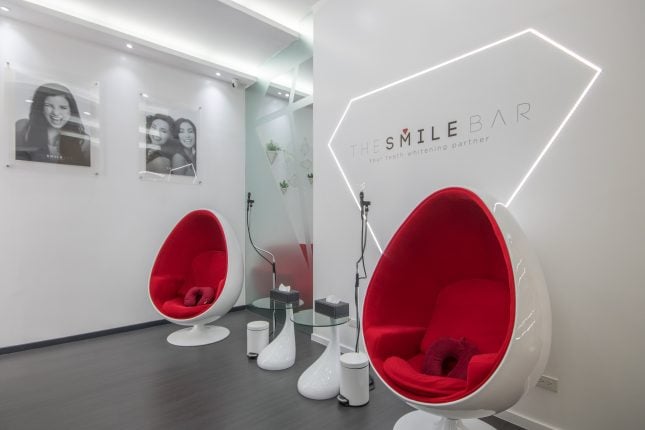
Relax in The Smile Bar’s stylish whitening lounge—where professional treatments and safe whitening products meet.
Frequently Asked Questions
What is the actual effectiveness of whitening toothpastes?
- Whitening toothpastes can remove surface stains caused by coffee, tea, and smoking, but they don’t change the natural color of your teeth or address deep discoloration. For noticeable brightening, dentist-developed formulas like WhiteningEVO BOOST provide safe, gradual results.
Do dentists recommend whitening toothpaste?
- Yes, as long as the formula is safe and well-balanced. Dentists typically suggest toothpastes that include fluoride, low-abrasion silica, and stain-fighting agents like pyrophosphates—while avoiding high peroxide levels or harsh abrasives.
Can whitening toothpaste damage enamel?
- Yes, if used excessively or if the formula contains strong abrasives or high amounts of hydrogen peroxide. Enamel erosion can lead to increased sensitivity and long-term dental issues. Choose a gentle, enamel-safe formula for daily use.
Is whitening toothpaste safe for sensitive teeth?
- It can be, provided it includes soothing agents like potassium nitrate and avoids irritants like sodium lauryl sulfate. Always read the label and select a product specifically designed for sensitive teeth.
Will whitening toothpaste whiten crowns or veneers?
- No. Whitening toothpaste only works on natural teeth. It cannot change the shade of dental restorations like crowns, veneers, or fillings. If you’re concerned about color mismatches, consult a cosmetic dentist.
How long does it take for whitening toothpaste to work?
- Most users see some improvement within 2 to 4 weeks of consistent use. However, results vary depending on your enamel, lifestyle habits, and the specific toothpaste formula.
Is it safe to use whitening toothpaste every day?
- Yes—if the toothpaste is low in abrasiveness and free from excessive chemical bleaching agents. Daily use of a fluoride-rich, enamel-safe whitening toothpaste can maintain brightness and support overall oral health.
Can whitening toothpaste cause mouth ulcers or dry mouth?
- Some formulas, especially those with sodium lauryl sulfate (SLS) or strong flavors, can irritate the mouth lining. If you’re prone to ulcers or dryness, opt for an SLS-free whitening toothpaste with a gentle formulation.
